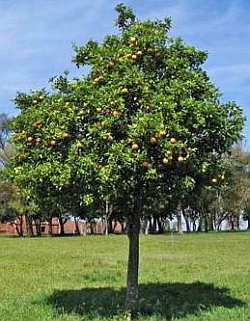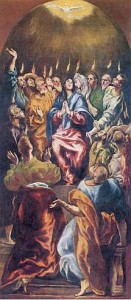A current theme erupting throughout the Godblogosphere concerns taking the Church back to the Gospel. I think that’s a noble effort.
As a flawed human among flawed humans, though, I worry that even such an essential “recovery” runs the risk of leading people into a form of sub-Christianity that in the end fails to reflect the entirety of the Kingdom of God and the reason Jesus came.
I was not planning to write on this issue in this “How to Fix the American Christian” series, but when a reader objected to the series due his belief that such a series merely supplants the Gospel with “behavior modification,” I felt compelled by God to write this. In fact, I believe God provided me an apt illustration that is already deepening how I think about this issue.
In the rush to strongly delineate the Law from the Gospel, I believe we have a tendency to fall into the error of lumping the Law with the natural outworking of the Gospel. In other words, because both involve doing, we fail to make a distinction between the Law and Gospel-based praxis.
One of the beauties of the Gospel is that being finds a central place among doing. Man cannot justify himself by the doing of the Law. Instead, he rests in the finished work of Jesus, abiding in Christ. What we Christians are by that abiding now defines our being.
But like so many aspects of the faith, mistaken notions lurk on the outskirts of that beauty. We are, after all, in the process of being made to be like Jesus; we are not complete yet.
The error of equating the Law with the natural outworkings of the Gospel are addressed by James in this well-known passage:
What good is it, my brothers, if someone says he has faith but does not have works? Can that faith save him? If a brother or sister is poorly clothed and lacking in daily food, and one of you says to them, “Go in peace, be warmed and filled,” without giving them the things needed for the body, what good is that? So also faith by itself, if it does not have works, is dead. But someone will say, “You have faith and I have works.” Show me your faith apart from your works, and I will show you my faith by my works. You believe that God is one; you do well. Even the demons believe–and shudder!
—James 2:14-19
What separates the Christian from the demon is not belief in Christ. It is faith expressed through Gospel praxis. It is doing those actions that naturally extend from having been confronted with the truth of the Gospel. It is not just saying, “I believe the Gospel and no longer attempt to justify myself by the Law.” No, it means that the entire way you and I live can and must be altered by that statement. And since that involves how we live life, it must necessarily involve what we do.
Herein lies the problem with the contemporary American Church: Our praxis does not reflect what we claim to believe—and the world knows it.
The illustration that best reflects this issue mirrors the agricultural focus Jesus often took in His parables.
Imagine three trees.
The first “tree” is hardly recognizable as a tree at all because its entirety remains below ground. It is all roots. That tree believes itself to be the prefect reflection of a life in Christ. It is always talking about the Gospel, defending it and affirming the five solas of the Reformation with an undying allegiance. It cannot help but sink its roots deep in the nourishment that is God Himself, praying and reading the Scriptures with enviable devotion.
But in truth, such a tree is abnormal. Because it is all below the surface, it cannot provide shade, wood, or fruit to others. It exists solely for itself. It takes from the soil and water, yet gives nothing back to the world above ground. From time to time, it may send a meager shoot up through the soil, but rarely does this act provide anything meaningful to others. Such a tree may even proudly declare how it is impervious to the wind that would knock down other trees, but it fails to see how useless it actually is, a perversion of the kind of tree that God intends.
I have three such trees in my yard, all Bradford Pears. They started out looking beautiful, but their trunks and branches were not strong, despite being deeply rooted. They cracked and split, so I had to cut them down. The stumps remain and the roots still show some signs of life, occasionally sending up sprouts. But that won’t be the case forever. For all intents and purposes, those trees are dead, their roots slowly rotting in the life-giving soil.
I’ve met plenty of Christians like the all-root trees. They didn’t start off that way, but that is how they finished. They have an apologetic that would make Ravi Zacharias seem like Joel Osteen, but theirs is an insular world beneath the soil, one the outside world never sees. They tend to live in fortress-like churches and are always talking about defending the faith. Yet for all their talk of the Gospel, the world around them goes on as if they are not there at all.
Another tree has a trunk, branches, and green leaves. By all appearances, it seems like a normal tree. It does interact with the world, doing useful things for others like providing shelter from the sun and bearing fruit for eating. Such a tree prides itself on giving back to the world by what it does as a tree. It believes itself to be the perfect reflection of a life in Christ.
But below the surface of this tree one finds a curious lack: It has no roots. It didn’t start that way, but over time the tree became so concerned about appearing to be a tree by being doing what a tree is supposed to do that whatever focus it needed to give to its rootings withered away. Over time, such a tree tends to burn out and dry up. And all the things it once provided shrivel.
I’ve met plenty of Christians who spend all their time trying to maintain an appearance of being a Christian, but they have no Gospel roots. Such people are all about what they do and how they act. They have no means of simply being or dwelling, no rootedness to the source of nourishment and grounding.
A few years back, we hosted the big family Christmas and got a tree from our neighbor. We cut the tree fresh from their plantings, struck by its shape and beauty. The scent from that fresh evergreen filled our house. If it dropped any needles in our living room, I couldn’t find them. We enjoyed everything about that tree, but when it had served its purpose, I dumped it on our burn pile in mid-January.
The amazing thing about that rootless, cutoff tree is that it remained green until August. Finally, a typical August drought proved too much and it finally succumbed to brown.
I said that there are three trees, right?
The only tree that genuinely serves the purposes of God is the one with deep roots in the freedom and nourishment of the Gospel and a trunk and crown that provide a full expression to the world of that rootedness by providing beauty, shelter, comfort, and food to others. Such a tree fully expresses what it means to be a unified, living thing. The roots support the tree, anchor it, and provide nourishment to the trunk and crown. The trunk and crown not only make the tree useful to others, but they deliver life and growth back to the roots. In fact, without the trunk and crown, the tree dies a slow, lingering death.
For all us Christians to be healthy, we must not only have the Gospel, but we must also have Gospel praxis. That Gospel praxis reinforces our faith as much as anything. Doing the Gospel truly does lead to a reinforcement of the Gospel in our hearts. That natural outworking enlarges us as much as a tree’s leaves provide the photosynthesis to make it grow. I can only speak for myself, but I know the profound reality of how the outworkings of the Gospel through genuine practice serve to reinforce the Gospel in me. The doing strengthens the being.
When we Christians declare that we are no longer beholden to the Law, we must NEVER confuse the doing of the Law with the doing of the Gospel. Far too many Christians are making that mistake, though, because of their well-meaning intentions to distance the Church from works righteousness. However, in the course of such avoidance, Gospel praxis suffers. This all too often leads to insular churches that are smug in their preservation of the truth of the Gospel, while at the same time they give nothing of that Gospel truth back to a dying world. And so they inevitable harden and die along with the world they are so loathe to serve for fear of betraying sola fide and sola gratia.



